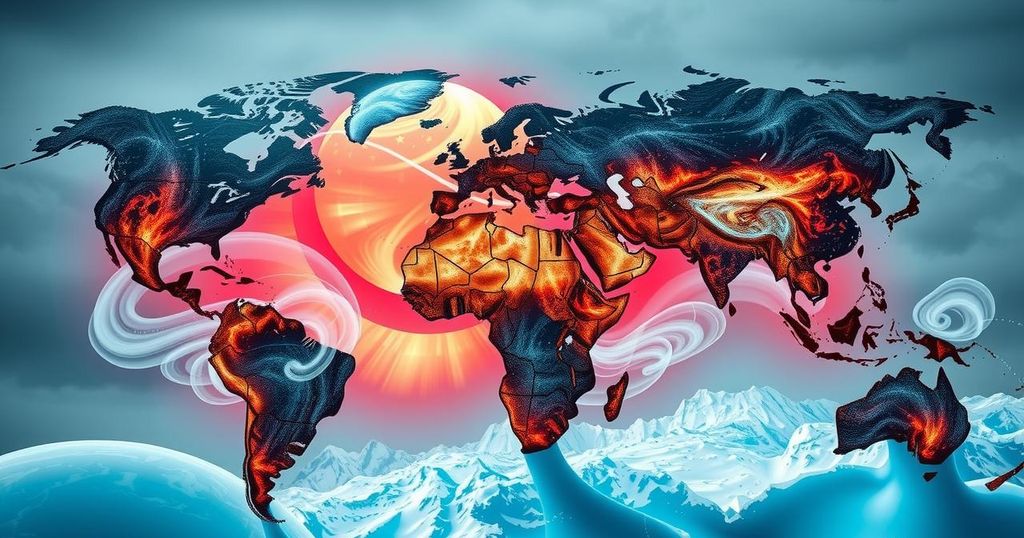2024 Braces for Record Heat Amidst Climate Change Urgency

The World Meteorological Organization indicates that 2024 will be the warmest year on record, following a decade of extreme heat due to human activities. UN Secretary-General António Guterres and WMO Secretary-General Celeste Saulo emphasize the urgent need for global actions to cut emissions and adapt to climate change threats. The increasing severity of weather events has led to extensive loss of life and underscores the importance of initiatives aimed at improving climate services and international cooperation.
The year 2024 is projected to be the warmest recorded, concluding a decade marked by extreme temperatures resulting from human activities, as stated by the World Meteorological Organization (WMO). Greenhouse gas levels have surged to unprecedented highs, ensuring more heat is locked in for the future. UN Secretary-General António Guterres declared this decade as one of severe heat, urging immediate action to reduce emissions and pivot towards renewable energy sources.
Celeste Saulo, WMO Secretary-General, emphasized the escalated severity of climate change with frequent Red Alerts issued during her inaugural year. In light of the 75th anniversary of the WMO in 2025, she underscored the criticality of collective global responsibility to act urgently against climate degradation. The alarming rise in temperatures correlates with an increase in extreme weather events, highlighted by record rainfall, flooding, and heatwaves experienced worldwide.
The ongoing climate crisis has escalated the urgency of initiatives such as the “Early Warnings for All” program that aims to enhance climate adaptability. Additionally, the “Global Greenhouse Gas Watch” initiative is gaining traction to address the growing greenhouse gas emissions under the framework of the United Nations Framework Convention on Climate Change. Reports by the WMO throughout 2024 reveal alarming trends, attributing climate change to a number of significant weather events, which have caused extensive loss of life and displacement.
Climate change has negatively impacted human health and ecosystems, demonstrating an increased number of extreme heat days, reported as 41 days in 2024 alone. A robust international opportunity for collaborative action has been facilitated by WMO, bringing together experts across various organizations to devise strategies against extreme heat threats, responding to calls for action by the UN Secretary-General. As the WMO approaches its anniversary, it remains dedicated to global efforts to monitor climate conditions and bolster initiatives for mitigating climate change.
In the context of escalating climate change, the year 2024 has emerged as a significant marker, representing the culmination of a decade of unprecedented global warming exacerbated by human activities. The World Meteorological Organization (WMO) has warned that extreme weather events, largely driven by rising greenhouse gas emissions, have become increasingly frequent and severe, necessitating urgent global action. This article highlights statements from prominent figures such as UN Secretary-General António Guterres and WMO Secretary-General Celeste Saulo, emphasizing the pressing need for collective action in mitigating climate change impacts and adapting to its consequences.
In conclusion, the year 2024 stands as a stark illustration of the consequences of climate change, underscoring the critical need for immediate and sustained action to reduce greenhouse gas emissions. As the WMO and global leaders call for a transition to renewable energy sources and enhanced climate services, the international community must unite in response to the challenges posed by climate extremes. The commemorative efforts by the WMO on its 75th anniversary signify an opportunity to foster global cooperation toward a sustainable future.
Original Source: wmo.int






